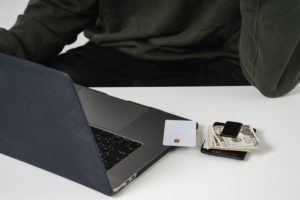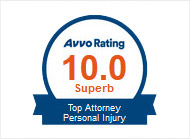What Are Your Rights During a Traffic Stop?
No matter how good of a driver you are, chances are it’s happened to you: That moment of dread when you see a police car in your rearview mirror and realize that you are the one they want to pull over. As uncomfortable and frightening as this moment can be, you should understand that you are entitled to certain rights and protections during a traffic stop. If these rights are violated, you may be able to dismiss criminal charges against you. Knowing these rights — and knowing how to ensure that these rights are protected — can be critical to ensuring that you are treated fairly during a traffic stop.
Silence May Be an Option
There is a reason that you always hear about your right to remain silent. If you are pulled over, you have the right to remain silent, as does your passenger. You do not have to answer any questions at the scene. However, don’t confuse silence for non-compliance. You should listen to all commands from the police and supply identification information upon request. You should also keep your hands visible at all times, and inform the police before reaching for any documents. For the safety of both you and the officer, move slowly at all times, and make no sudden movements.
 What to Do if You Are Arrested
What to Do if You Are Arrested
If you are arrested for a crime, contact a lawyer immediately. Do not consent to an interrogation or sign any paperwork without a lawyer present. As someone who has been arrested, you will be entitled to a phone call. Use that call to either call an attorney or connect with a family member or friend who can do that for you. Do not answer any questions without having an attorney present.
Keep in mind: If you call an attorney, the police cannot listen to your phone call. However, they can listen to any calls you make to anyone else.
As best as you can, try to remember the names, badge numbers, and faces of any officers you interact with — particularly if you believe that your rights are being violated. This information may be important during a trial.
Rights of a Passenger
Passengers also have certain rights if the car that they are riding in is pulled over. These include:
- The right to not be held liable for the criminal conduct of the driver.
- The right to leave the scene of an individual, provided that the passenger is not under suspicion of committing a crime.
- The right to refuse search requests without a warrant.
- The right to ask questions about the nature of any detention.
- The right to decline to ask questions without a lawyer present.
What Happens If Your Rights Are Violated
Being aware of your rights in the event of a traffic stop can ensure that you advocate for yourself. Unfortunately, regardless of your own knowledge, there are instances in which the police will — intentionally or otherwise — violate your rights. If this is the case, you may be entitled to have the charges against you dismissed. Furthermore, depending on the specifics of the situation, you may be entitled to certain compensation.
If you believe that your rights have been violated and you have been accused of a crime, you should immediately connect with a competent attorney. If you are in the area of Morristown, New Jersey, Morristown criminal defense lawyer Gregg Wistosky is an excellent option to help you protect your rights. Attorney Wistosky is one of the best Morristown criminal defense lawyers available and has ample experience in dealing with cases like yours.
If you have been charged with a crime during a traffic stop, and you believe that your rights were violated, contact Gregg A. Witotsky, Esq. With decades of experience in criminal defense cases, attorney Witotsky can help you address any potential criminal charges. Visit his website or call today at 973-898-0161.




 Even though certain insider trading transactions can be legal, most of them are considered illegal. An act of illegal insider trading occurs when someone gains nonpublic information pertaining to a security and chooses to act on this information by buying or selling a stock. Using this information to gain an unfair advantage on the market would be a breach of your fiduciary duty.
Even though certain insider trading transactions can be legal, most of them are considered illegal. An act of illegal insider trading occurs when someone gains nonpublic information pertaining to a security and chooses to act on this information by buying or selling a stock. Using this information to gain an unfair advantage on the market would be a breach of your fiduciary duty. Eyewitness psychology focuses on exploring the different factors that contribute to a person’s perception and memory of an event. One of the biggest influences on memory is a person’s emotional state. At the time of the commission of a crime, someone is likely to be taken off guard. If the situation is dangerous, they will have increased adrenaline and likely running off a fight-or-flight response. In that scenario, their mind is going to hone in on certain details that are most relevant to securing their immediate safety or protecting someone else. This means they will miss out on other key details, which may ultimately falsely incriminate someone later.
Eyewitness psychology focuses on exploring the different factors that contribute to a person’s perception and memory of an event. One of the biggest influences on memory is a person’s emotional state. At the time of the commission of a crime, someone is likely to be taken off guard. If the situation is dangerous, they will have increased adrenaline and likely running off a fight-or-flight response. In that scenario, their mind is going to hone in on certain details that are most relevant to securing their immediate safety or protecting someone else. This means they will miss out on other key details, which may ultimately falsely incriminate someone later.
 When a plea bargain is offered, the prosecution is required to follow specific sentencing provisions set by the New Jersey Code of Criminal Justice. Any offers that the prosecution may extend to the defendant are based on the range of sentence possibilities for the criminal charges in question. Plea bargain offers usually align with the midpoint of the range of sentencing possibilities.
When a plea bargain is offered, the prosecution is required to follow specific sentencing provisions set by the New Jersey Code of Criminal Justice. Any offers that the prosecution may extend to the defendant are based on the range of sentence possibilities for the criminal charges in question. Plea bargain offers usually align with the midpoint of the range of sentencing possibilities. Many cases of wire fraud involve the act of defrauding businesses, and it is very common for banks to be the victims. Another common example is when false insurance claims are made in an attempt to obtain compensation for injuries or other losses that did not actually occur. While many cases of wire fraud involve businesses, it is important to understand that it is common for someone’s personal financial information is targeted as well.
Many cases of wire fraud involve the act of defrauding businesses, and it is very common for banks to be the victims. Another common example is when false insurance claims are made in an attempt to obtain compensation for injuries or other losses that did not actually occur. While many cases of wire fraud involve businesses, it is important to understand that it is common for someone’s personal financial information is targeted as well. Since most embezzlement cases are state charges, the penalties associated with the charge will differ depending on the state where the activity took place. In New Jersey, the penalties attributed to embezzlement depend on the amount of money or property value that was taken. In the event that the value is lower than $200, the crime could result in as many as six months in jail and fines that reach as high as $1,000.
Since most embezzlement cases are state charges, the penalties associated with the charge will differ depending on the state where the activity took place. In New Jersey, the penalties attributed to embezzlement depend on the amount of money or property value that was taken. In the event that the value is lower than $200, the crime could result in as many as six months in jail and fines that reach as high as $1,000. Appointment of Counsel
Appointment of Counsel Forgery can occur when someone pretends to be someone they are not. This encompasses a variety of crimes. It can include things like signing someone else’s name on a legal document or impersonating an official. It can also be using someone else’s login credentials to sign in and access confidential information. Keep in mind that this type of forgery is slightly different from general false identity claims. Forgery specifically applies to false writing of some sort. Simply stating that you are a different person without the act of writing or creating any documentation is not forgery.
Forgery can occur when someone pretends to be someone they are not. This encompasses a variety of crimes. It can include things like signing someone else’s name on a legal document or impersonating an official. It can also be using someone else’s login credentials to sign in and access confidential information. Keep in mind that this type of forgery is slightly different from general false identity claims. Forgery specifically applies to false writing of some sort. Simply stating that you are a different person without the act of writing or creating any documentation is not forgery.








